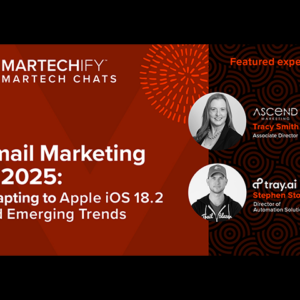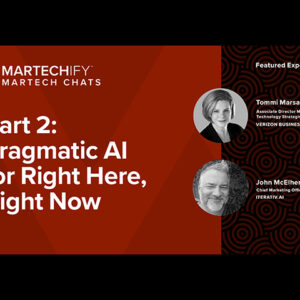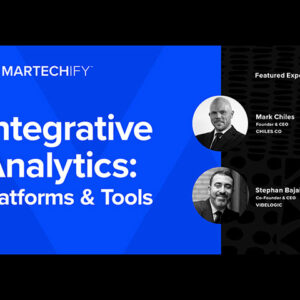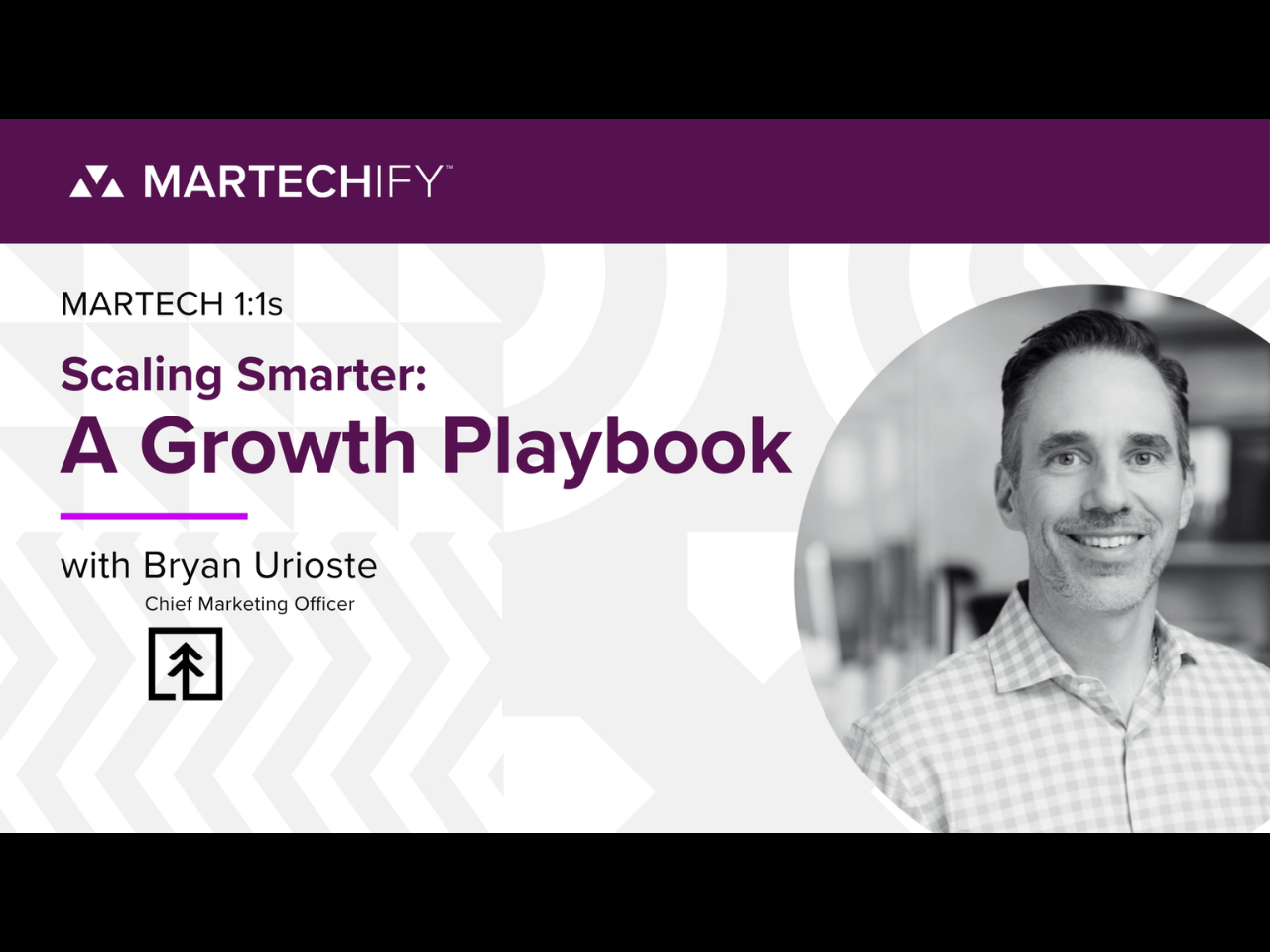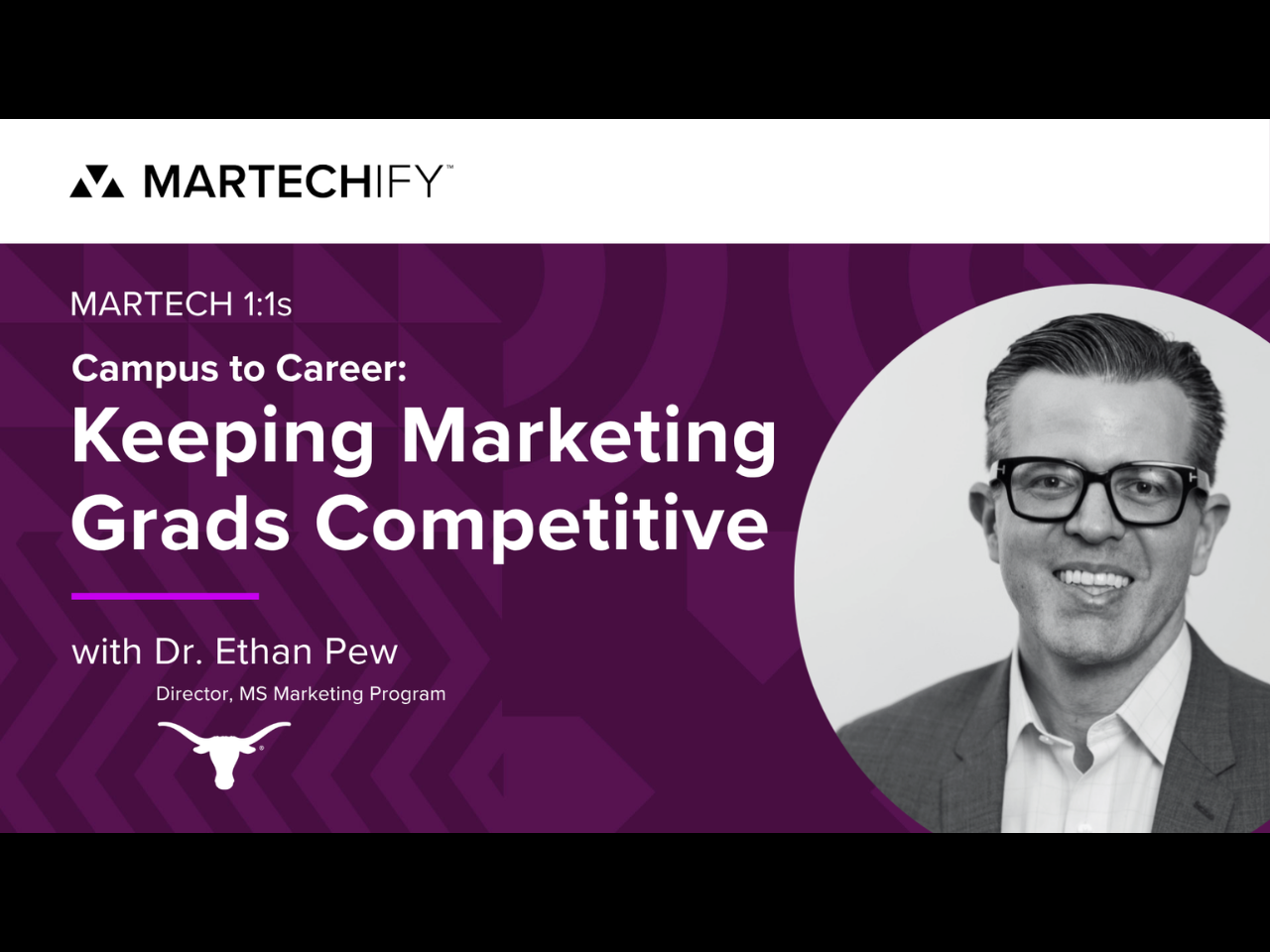How UNC Kenan-Flagler Business School is Preparing Business Leaders for the Age of AI
- Dr. Brad Staats, Senior Associate Dean of Strategy and Academics at UNC Kenan-Flagler Business School
- AI and Automation, Digital Transformation, Managing Your Career, Other Martech, Strategy and Trends
In a world defined by technological disruption and shifting business landscapes, one theme rings louder than ever: the need to keep learning. Few people embody this principle better than Brad Staats, Senior Associate Dean of Strategy and Academics at UNC Kenan-Flagler Business School. An operations professor turned academic leader, Dr. Staats is on a mission to equip students and professionals at every stage with the skills and mindset to thrive in ambiguity. He even wrote a book, Never Stop Learning: Stay Relevant, Reinvent Yourself, and Thrive, which captures the essence of his philosophy.
Watch the full interview with Brad Staats, where he shares how UNC Kenan-Flagler Business School is equipping leaders of all ages to handle the age of AI. This is a must watch interview if you are looking to stay ahead in your career!
From processes to people: The foundation of learning
Dr. Staats began his career in finance and strategy, but he quickly noticed a pattern: organizations with similar resources often produced dramatically different outcomes. The difference, he realized, came down to learning behaviors.
“I trained as an engineer, so I thought it was all about process,” he recalls. “But what I discovered is that process and behavior have to go hand in hand. It’s about asking: what should we do, why don’t we do it, and how can leaders set people up to thrive?”
That philosophy shapes UNC Kenan-Flagler’s programs, from undergraduate to MBA and specialized master’s degrees. The school emphasizes not just knowledge acquisition but also the activation skills: critical thinking, adaptability, and interpersonal effectiveness, which turn technical expertise into impact.
“I trained as an engineer, so I thought it was all about process,” he recalls. “But what I discovered is that process and behavior have to go hand in hand. It’s about asking: what should we do, why don’t we do it, and how can leaders set people up to thrive?”
That philosophy shapes UNC Kenan-Flagler’s programs, from undergraduate to MBA and specialized master’s degrees. The school emphasizes not just knowledge acquisition but also the activation skills: critical thinking, adaptability, and interpersonal effectiveness, which turn technical expertise into impact.
Redesigning education for the AI era
Higher education is undergoing its own transformation, and UNC Kenan-Flagler is leaning in. Dr. Staats highlights the school’s new approach to dynamic experiential education, where students tackle real-world challenges rather than just case studies. Through initiatives like STAR (Student Teams Achieving Results), undergraduates and MBAs collaborate on consulting projects for Fortune 500 companies and nonprofits alike, building practical experience before they graduate.
Technology is a central driver of this redesign. The school has partnered with Microsoft to launch BlueChip, a generative AI platform tailored for students, faculty, and staff. It’s part of a broader strategy to integrate digital tools into every layer of the curriculum.
“In our online MBA, we’re rolling out a required course on AI for leaders,” Dr. Staats explains. “It covers literacy, data acumen, strategy, and ethics. Our goal is to make sure every student has the skills to navigate digital transformation.”
Technology is a central driver of this redesign. The school has partnered with Microsoft to launch BlueChip, a generative AI platform tailored for students, faculty, and staff. It’s part of a broader strategy to integrate digital tools into every layer of the curriculum.
“In our online MBA, we’re rolling out a required course on AI for leaders,” Dr. Staats explains. “It covers literacy, data acumen, strategy, and ethics. Our goal is to make sure every student has the skills to navigate digital transformation.”
Balancing technical and transferable skills
For students, the challenge isn’t just mastering today’s tools like Salesforce, Marketo, AWS, but preparing for tools that don’t even exist yet. Employers still expect technical readiness, but increasingly they emphasize three things: critical thinking, effective communication, and AI fluency.
That’s why Dr. Staats believes in building what he calls a “learn-it-all” mindset. “Satya Nadella once said, the ‘learn-it-all will always do better than the know-it-all.’ That’s exactly what we’re trying to instill,” he says. “We’re training people not only to use today’s technology, but to adapt to tomorrow’s.”
A good example is the school’s course on Communicating with Data, co-taught by a management communications professor and an operations professor. Students don’t just generate visualizations—they learn to tell stories with data, combining technical insights with human-centered communication.
That’s why Dr. Staats believes in building what he calls a “learn-it-all” mindset. “Satya Nadella once said, the ‘learn-it-all will always do better than the know-it-all.’ That’s exactly what we’re trying to instill,” he says. “We’re training people not only to use today’s technology, but to adapt to tomorrow’s.”
A good example is the school’s course on Communicating with Data, co-taught by a management communications professor and an operations professor. Students don’t just generate visualizations—they learn to tell stories with data, combining technical insights with human-centered communication.
Ethics, integrity, and the human edge
Of course, the rise of AI also raises concerns around plagiarism, integrity, and the erosion of traditional learning. Dr. Staats acknowledges these challenges but views them as opportunities to rethink pedagogy.
“Last semester, I had students write in blue books handwritten essays because I wanted them to show their thinking in real time,” he says. Other faculty are redesigning courses to emphasize live presentations and probing discussions. “In some ways, we’re back to the Greeks—face-to-face dialogue that tests critical thinking. AI can automate tasks, but it can’t replace the human connection.”
“Last semester, I had students write in blue books handwritten essays because I wanted them to show their thinking in real time,” he says. Other faculty are redesigning courses to emphasize live presentations and probing discussions. “In some ways, we’re back to the Greeks—face-to-face dialogue that tests critical thinking. AI can automate tasks, but it can’t replace the human connection.”
The future of work and lifelong learning
When asked about the future of AI, Dr. Staats is cautiously optimistic. “There will be winners and losers,” he admits. “But I believe these tools will let us solve new problems and shift our attention to higher-value work. The challenge is learning how to use them well.”
And learning, he emphasizes, doesn’t stop at graduation. With career disruptions becoming the norm, lifelong and continuous education is a priority. UNC Kenan-Flagler Business School serves not only undergraduates and MBAs, but also mid-career professionals seeking certificates, online MBAs, or specialized master’s programs and executive development in partnership with leading organizations. In addition, it offers a PhD program and custom-designed programs for companies, known as UNC Executive Development.
“There’s no age at which you can say, ‘I’m done learning,’” Dr. Staats says. “Whether you’re 25 or 55, the key is to keep pushing yourself, keep adapting, and keep growing.”
And learning, he emphasizes, doesn’t stop at graduation. With career disruptions becoming the norm, lifelong and continuous education is a priority. UNC Kenan-Flagler Business School serves not only undergraduates and MBAs, but also mid-career professionals seeking certificates, online MBAs, or specialized master’s programs and executive development in partnership with leading organizations. In addition, it offers a PhD program and custom-designed programs for companies, known as UNC Executive Development.
“There’s no age at which you can say, ‘I’m done learning,’” Dr. Staats says. “Whether you’re 25 or 55, the key is to keep pushing yourself, keep adapting, and keep growing.”
How to be a “learn-it-all”?
Dr. Staats leaves students and professionals alike with four pieces of advice:
1. Master the basics: Understand what’s underneath the tools you use.
2. Get comfortable failing: Growth often comes from discomfort.
3. Own your journey: No one else can chart your path for you.
4. Adopt the learn-it-all mindset: Stay humble, stay curious, and stay resilient.
For marketers, technologists, and business leaders navigating the AI era, these lessons are more relevant than ever. The future belongs not to those who know it all, but to those who never stop learning.
1. Master the basics: Understand what’s underneath the tools you use.
2. Get comfortable failing: Growth often comes from discomfort.
3. Own your journey: No one else can chart your path for you.
4. Adopt the learn-it-all mindset: Stay humble, stay curious, and stay resilient.
For marketers, technologists, and business leaders navigating the AI era, these lessons are more relevant than ever. The future belongs not to those who know it all, but to those who never stop learning.


